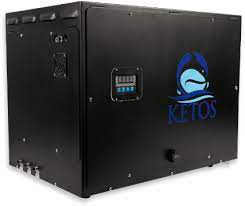Remotely Measure Levels of Dissolved Silica in Water
Monitoring Water for Dissolved Silica With KETOS SHIELD
Accurately Measure Levels of Dissolved Silica in Water
Download our KETOS SHIELD overview to learn:
- We deliver lab-precision accuracy with an extensive operating range (30+ water testing parameters)
- We’ve made it easy it is to install, integrate, and operate within any organization’s existing infrastructure
- We’ve eliminated the need for static water testing, constant cleaning, or manual calibration
- Secure and straightforward it is to access your data (via laptop, mobile, or tablet) so you can make on-the-fly decisions – even if you are off-site
Learn To Automate Dissolved Silica Testing In Water With Lab-Accurate Results in Real-Time
"*" indicates required fields
Testing for Dissolved Silica in Water
 Want to monitor for dissolved silica in your water? KETOS SHIELD offers rapid water testing for 30+ parameters. It also saves organizations high upfront investment expenditures via an industry-leading $0-CAPEX subscription model.
Want to monitor for dissolved silica in your water? KETOS SHIELD offers rapid water testing for 30+ parameters. It also saves organizations high upfront investment expenditures via an industry-leading $0-CAPEX subscription model.
As an award-winning intelligent water management solution, KETOS SHIELD provides accurate monitoring for dissolved silica and 30+ water testing parameters. The solution allows organizations to leverage one solution for a full 360-degree view of their water quality.
Why Monitor Water for Dissolved Silica with KETOS
Dissolved silica is found in most natural waters and is used in many industrial applications (including food and pharmaceuticals) as an additive and for water filtration.
Silica in water usually appears at levels at or below 30 mg/L but can be as high as 1000 mg/L in brackish water.
When added to water in industrial processes, it may be used as a conditioner, detergent, or corrosion inhibitor. However, too much silica in water can cause issues for organizations that use boilers and steam applications, as high pressure can cause silica to deposit in boiler tubes and heat exchangers. These deposits ultimately affect heat transfer efficiency and decrease turbine blades’ efficiency. This buildup can cause downtime for the requisite removal and cleaning.
Due to buildup affecting operations uptime, silica levels must be kept as low as 0.005 mg/L in high-pressure applications. Monitoring for silica helps water operators catch inefficiencies and rebalance their water supply with infrastructure so that downtime can be kept to a minimum.
What are the Issues With Dissolved Silica in water?
Dissolved silica, a common component in natural water sources, can pose several challenges when present in excessive concentrations. While silica itself is not typically harmful to human health, elevated levels can lead to various issues affecting both industrial processes and environmental ecosystems. Here are key concerns associated with dissolved silica in water:
- Scaling in Industrial Processes: High levels of dissolved silica can contribute to the formation of scale deposits in industrial equipment and infrastructure. In systems such as boilers, cooling towers, and heat exchangers, silica can precipitate out of solution and accumulate on surfaces, impairing heat transfer efficiency and reducing operational effectiveness. Scaling can lead to increased energy consumption, maintenance costs, and equipment downtime, impacting industrial productivity and profitability.
- Corrosion and Damage to Infrastructure: While silica itself is not corrosive, it can exacerbate corrosion in metal pipes and equipment when present in conjunction with other contaminants or aggressive water chemistry. Corrosion caused by elevated silica levels can lead to leaks, pipe failures, and infrastructure damage, posing risks to water distribution systems, industrial facilities, and municipal infrastructure.
- Water Treatment Challenges: Managing dissolved silica in water treatment processes presents challenges for water utilities and industrial facilities. Silica can interfere with treatment processes such as coagulation, flocculation, and sedimentation, reducing treatment efficiency and compromising water quality. Elevated silica levels may require specialized treatment methods such as ion exchange, membrane filtration, or chemical precipitation to achieve desired water quality standards.
- Environmental Impact: Excessive silica concentrations in natural water bodies can affect aquatic ecosystems and biodiversity. Silica is an essential nutrient for diatoms and other aquatic organisms, but elevated levels can disrupt ecological balance and species composition. In freshwater habitats, high silica concentrations may lead to the proliferation of certain algae species, altering ecosystem dynamics and water quality.
- Analytical Challenges: Accurately measuring dissolved silica concentrations in water samples can be challenging due to its complex chemistry and tendency to form colloidal and polymeric species. Analytical methods for silica determination require precision and sensitivity to ensure reliable results, particularly in environmental monitoring and regulatory compliance applications.
Causes of Dissolved Silica in Water
Dissolved silica in water primarily originates from natural geological processes and human activities. Natural sources include the weathering of rocks rich in silicate minerals such as quartz, feldspar, and mica. This process releases silica into the soil and groundwater, which eventually finds its way into surface water bodies. Additionally, volcanic eruptions contribute to the release of silica into the atmosphere, which then settles in water bodies upon precipitation. Human activities such as industrial processes, agriculture, and wastewater discharge also introduce silica into water systems through the use of fertilizers, mining activities, and the discharge of effluents from manufacturing processes. These anthropogenic sources can elevate silica levels in water bodies, potentially impacting aquatic ecosystems and water quality.
Acceptable Levels of Dissolved Silica in Water by Industry
Controlling dissolved silica levels in water is essential across various industries to prevent scaling, fouling, and operational inefficiencies. Silica, in its dissolved form, can cause significant problems in processes such as cooling, boiler water systems, and manufacturing operations. Different industries maintain specific acceptable levels of dissolved silica to ensure optimal performance and longevity of their equipment. For instance, power plants, which use water extensively for cooling and steam generation, typically have stringent silica limits to avoid turbine and boiler damage. The semiconductor industry, which requires ultra-pure water, also maintains very low silica thresholds. In contrast, industries like agriculture have higher allowable silica levels due to the less critical nature of its impact.
| Industry | Acceptable Levels of Dissolved Silica (ppm) |
|---|---|
| Power Plants | Less than 20 ppm |
| Semiconductor Manufacturing | Less than 1 ppm |
| Pharmaceutical | Less than 10 ppm |
| Agriculture | Less than 50 ppm |
| Food and Beverage | Less than 25 ppm |
How to Easily Monitor Water for Dissolved Silica
Instead of measuring dissolved silica with a meter that only measures a handful of conditions; the KETOS SHIELD is capable of mentoring dozens of water related issues — in real-time. Monitoring for dissolved silica is just the beginning when you use KETOS. Does your team need more information on how KETOS can help monitor for dissolved silica and 30+ other water testing parameters?
While monitoring dissolved silica marks the start, KETOS extends far beyond. Discover how KETOS aids in tracking dissolved silica and over 30 other crucial water testing parameters. Empower your team with comprehensive insights for effective water quality management and informed decision-making.
Whether you need to detect iron in drinking water, free chlorine in wastewater, or fluoride in the chemical industry, KETOS’ automated water monitoring will save time and reduce compliance risks.
What Water Quality Parameter Do You Test Most Often?
The KETOS SHIELD remotely monitors dozens of water quality parameters. Which one do your water operators test most often?
KETOS Awards
















About KETOS
KETOS is a fully integrated platform that combines hardware, software, connectivity, automated reporting, predictive analytics, and maintenance to automate water monitoring and testing. KETOS enables water operators to identify and solve mission-critical water efficiency and quality challenges in real-time, or before they happen through predictive algorithms, to ensure that water meets specific quality and safety standards.

